For white-collar staff, AI threatens new workplace revolution
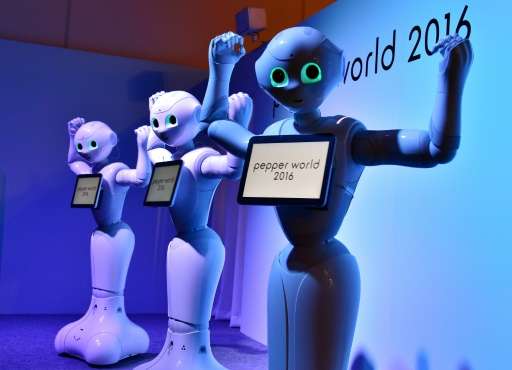
If your job involves inputting reams of data for a company, you might want to think about retraining in a more specialised field. Or as a plumber.
After industrial robots and international trade put paid to many manufacturing jobs in the West, millions of white-collar workers could now be under threat from new technology such as artificial intelligence (AI).
The issue of how best to face up to this "Fourth Industrial Revolution" has been exercising politicians and business leaders this week at the World Economic Forum in the Swiss Alpine town of Davos.
The progress of artificial intelligence has been "staggering" in recent years, said Vishal Sikka, chief executive of Indian IT services giant Infosys.
"But in many ways we are at the beginning of this evolution and we face the prospect of leaving a larger part of humanity behind than in any other (industrial) advance," he warned.
Public disquiet about technological change and globalisation has already sparked a populist backlash in Western countries, culminating in Donald Trump's inauguration as US president on Friday.
But much more dislocation could yet be coming, and both the public and Western governments need to wake up to the challenge, observers say.
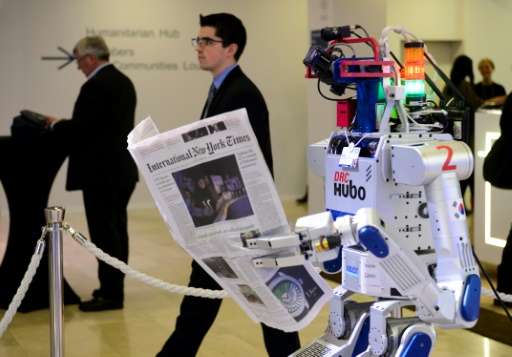
New technologies are "going to completely disrupt and change the working place for a long time", and governments must put in place policies, skills training and safety nets to cope, International Monetary Fund chief Christine Lagarde said.
Education systems are failing to plug skills shortages, experts say.
Europe and the United States have hundreds of thousands of vacancies in IT and engineering which often get filled by immigrants, for want of homegrown talent, feeding in turn the anti-globalisation backlash.
And according to a survey of 18,000 employers in 43 countries by employment consultancy ManpowerGroup, up to 45 percent of tasks done daily in the workplace could be automated using current technology.
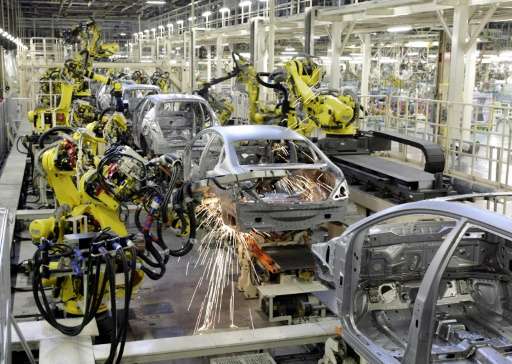
Education, education, education
For its part, global consultancy McKinsey said more than 60 percent of jobs and 30 percent of business activities could be automated today.
"We can't rely on government to re-skill people in the face of rapid technological change and automation. Business will have to drive this," said McKinsey's global managing partner, Dominic Barton.
"Back office" labour in banking, insurance and other financial services, which involves clerical work such as data inputting, is seen as most at risk from IT automation.
But even professions like medicine and accountancy could face upheaval as AI evolves to ever-more sophisticated heights.
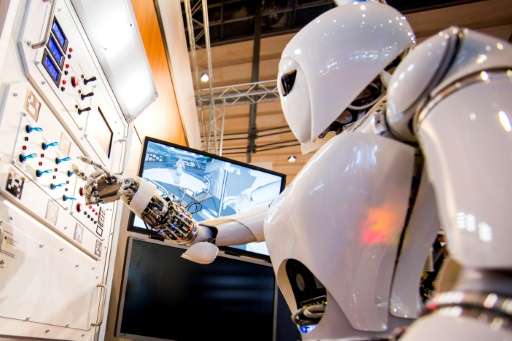
A computer using machine intelligence is perfectly equipped to crunch through the available academic literature when analysing suspected cancer in a doctor's patient.
But the doctor would still be needed ultimately to exercise his or her judgement over the best course of treatment, a pattern of adding specialist value that needs to be replicated in other professions if they want to stay relevant.
People have managed to adapt to past shifts as new industries and types of work emerge.
Telephone operators used to be a ubiquitous feature of daily life. Now they are extinct, but life goes on and IT support staff are instead found in most companies.
Companies such as Uber and Airbnb are disrupting old business models, creating new opportunities, albeit ones that pay less well than the stable industrial jobs of the past.

And people will need to be more flexible, transitioning over multiple careers during their working lifetimes, experts predict.
"We've seen this problem before. The issue is it's happening faster and faster," Mike Gregoire, CEO of US software company CA Technologies, told AFP.
"If we can't figure out a way between businesses and government to proactively help that population learn new skills where they can be productive, I think you're going to see a very unstable society," he said.
For Alain Roumilhac, president of ManpowerGroup France who started his working life as a welder, "it all comes down to one word: education".
Certain skill-sets will likely remain in demand. "It's always hard to find a good plumber," said the Frenchman.
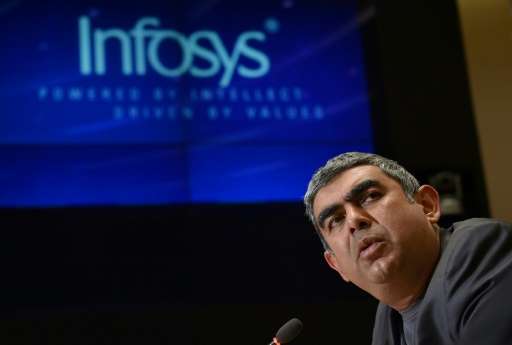
But even that kind of skilled trade can find it useful to take on board elements of training in science, technology, engineering and mathematics (STEM).
Gregoire said that his home in Greenwich, Connecticut lies adjacent to a river and his garden has a maze of pumps to guard against flooding, all hooked up to an iPhone app and programmed by his plumber.
"That plumber is as STEM-aware as any programmer," he said.
© 2017 AFP




















